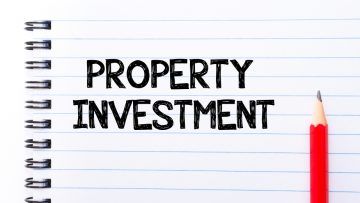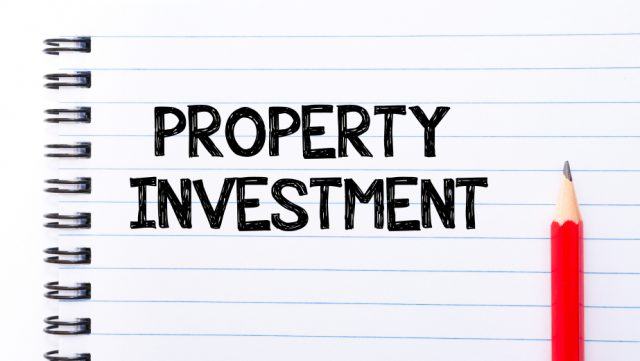The Worst Areas in the UK to Have Invested in Property
Following yesterday’s latest House Price Index from the Office for National Statistics (ONS) and Land Registry, online estate agent eMoov.co.uk has highlighted the worst places in the UK to have invested in property.
Using the figures for the end of 2016, for which the latest official data is available, eMoov looked at areas of the UK where unlucky property investors and homeowners have seen values fall annually, despite the market as a whole remaining resistant throughout the past year.
The top three worst locations to have invested in property
Across the whole of the UK, nowhere has proved worse for property investors than the City of Aberdeen. While many property owners have seen the price of their property move positively, prices on the Scottish east coast have plummeted by an average of 9.81% – a loss of almost £20,000 from its height of £185,848 last year.
Those that have invested in property in Inverclyde are also feeling the pain of price falls, with values down by 7.63% over the past 12 months.
Perhaps more surprisingly is the third worst location to have invested in property in the UK. While the average property owner in the East of England has seen the value of their investment rise by a notable 11.31% over the past year – the highest of all UK regions – those in Cambridgeshire have paid the price of an over-inflated market, with prices down by 5.12% – the highest decrease of anywhere in England.
The worst in England
Joining Cambridge in the worst places to have invested in property in England are Eden and Copeland, both of which are located in the North West. Although the average property owner in the North West enjoyed an increase of 6.58%, Eden and Copeland saw prices drop by 3.05% and 2.66% respectively.
The worst in London

The Worst Areas in the UK to Have Invested in Property
It has been an up-and-down year for London, with the changes to Stamp Duty for buy-to-let and additional homes, and the uncertainty caused by the Brexit vote. Although the capital has remained strong in the face of adversity, property investors in Hammersmith & Fulham won’t be feeling too good about their pockets. It is the only borough to have seen prices drop, by 2.10%, in the past year, while London as a whole has seen values increase by over 7%.
The next worst performing boroughs were Richmond upon Thames and Westminster, although, at 0.38% and 1.15%, they have at least provided a small return for those who have invested in property.
The worst in Wales
Unfortunately for those who have invested in property in mid-Wales, Ceredigion has experienced the largest decline in values across the nation, with the fourth largest across the entire UK. Wales as a whole has seen a slump in the property market, but showed signs of recovery towards the end of 2016.
But property investors in Ceredigion have not experienced an uplift, with prices down by 3.49% over the past year.
Merthyr Tydfil has seen the second largest and only other decrease in property values across Wales, with a drop of 1.51%
The worst in Scotland
Not only is Scotland home to the top two worst locations in the UK to have invested in property, it would seem that an uncertain year has had a detrimental impact on the Scottish market as a whole.
Of the 16 locations that have recorded a decline in prices, seven are situated in Scotland. Along with the City of Aberdeen and Inverclyde is Aberdeenshire as a whole (-3.48%), North Ayrshire (-2.03%), the City of Edinburgh (-0.60%), Midlothian (-0.47%), and West Dunbartonshire (-0.31%).
Comment
The Founder and CEO of eMoov, Russell Quirk, reacts to the findings: “Despite the market performing well throughout what was a testing year, when the dust settles, there will always be areas that have seen a fall in prices on an annual basis.
“The UK market is renowned for its strength and reliability in terms of providing some form of return on our investment into bricks and mortar, but there will always be those that have to chalk it down to experience and accept the wooden spoon of UK property.”
He explains: “In this case, it is Aberdeen, Inverclyde and Cambridge, amongst others. Aberdeen has been rocked by a declining oil industry and a lack of buyer demand, so it comes as little surprise that it remains in the doldrums of UK property. I think the SNP’s attempt to weaponise the Brexit vote and seek independence so soon after their original referendum has made a rod for Scottish homeowners’ backs, by creating a great deal more hesitation and uncertainty in the market than was really necessary. Demonstrated by the presence of seven Scottish entries in the 16 areas that have seen prices fall over the last year.”
Quirk continues: “With an average house price close to rivalling that of the capital, Cambridge is no doubt paying the price for an overinflated market during 2016. As prices spiral beyond affordability, a fall in demand by the average Cambridge homeowner will always result in an annual drop in prices.
“Although not the largest decrease of the lot, homeowners in Hammersmith & Fulham will no doubt be pinching themselves after drawing the short straw of London property values. Although London has stood tall against the second home Stamp Duty changes, and the buy-to-let sector remains a lucrative business, Hammersmith & Fulham’s high-end market has no doubt suffered most from the turbulence of the last year.”
If you’ve invested in property, how have your assets fared?










